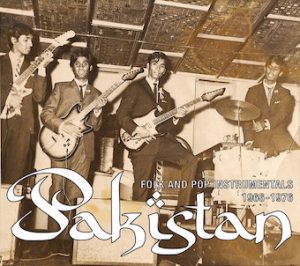
1977年のクーデター&政変後、国家の検閲が入り途絶えてしまったというパキスタンのエレキ・バンド・ブーム〜1960年代後半から10年の間、カラチ、ラホール、ペシャワールのナイトクラブで活躍したパンサーズ、モッズ、アブストラクツ、アイ・ジェイズほか、エレキとシタール、モッズ風オルガンとサントゥールが入り乱れる南アジアならではのガレージバンド・サウンドが楽しめます。フィルム・ソング風あり、インディアン・サイケあり、チンドン・ビート風もあり、中には国籍不明、日本や台湾、韓国あたりの60年代映画挿入曲としても立派に通用するような汎アジア風エレキ・インストも!
1 The Panthers / Malkaus
2 The Mods / Spring Dance
3 The Bugs / Theme From “Do Roha”
4 The Blue Birds / Hussani Lal Qalander
5 Sohail Rana / The Khyber Twist
6 Nisar Bazmi / Aesi Chal Main
7 The Abstracts / Mahiya
8 The Fore Thoughts / The Boat Man’s Cry
9 The Panthers / Simmi Dance
10 The Aay Jays / Lal Qalander Lal
11 The Mods / Bondure
12 The Panthers / Bhairvi
13 The Abstracts / Sindhi Bhairvan
14 The Fore Thoughts / Shahbaz Qalander
15 The Aay Jays / Mizra Ki Dhun
16 The Mods / Garba Dance
17 Nisar Bazmi / Pyar Ki Ik Naee
18 The Aay Jays / The Aay Jays Theme
19 The Abstracts / Lotus Flowe
21 The Fore Thoughts / Jungee
22 The Blue Birds / Sun We Bilou Waliya
Spending the greater part of the last decade assembling this masterpiece while tracking down most of the musicians in the process, Stuart Ellis of Radiodiffusion International has compiled a mind-blowing set of Pakistani instrumentals spanning the period between 1966 and 1976. It’s all here: rock and roll beat, surf, folk traditional mixed with pop, film tunes, electric guitars, sitar and organ solos, brilliant percussion and arrangements crafted by the grooviest bands of the period: The Panthers, The Mods, The Bugs, The Blue Birds, The Abstracts, The Aay Jays, The Fore Thoughts, Nisar Bazmi, and Sohail Rana. Situated between Afghanistan, India and Iran, the collision of cultural influences in Pakistan gave birth to music that was, and still is, unlike anything heard anywhere else on the planet. By the late 1960s, previous restrictions on musical expression began to soften and bands that were playing American and British pop covers became popular in Karachi’s burgeoning night club scene and at private dance parties. Long hair came into fashion among young men and hashish became the popular drug of choice on college campuses across Pakistan. Soon, hippies from both North America and Europe began flocking to Karachi, Lahore and Peshawar. Very few of the bands that formed during this time actually got to record. Like their neighbors in India, the Pakistani record industry was more focused on releasing “filmi” music, which had just started to incorporate the electric guitar and electric sitar. Pakistan’s musical revolution ended in June 1977 after a coup d’état and the establishment of a pure Islamic state governed by Sharia law. This marked the end of the “Swinging ’70s” in Pakistan as night clubs and alcohol were banned throughout the country. Television and cinema, as well as popular music, were now subjected to government censorship. After the clamp-down, many Pakistani musicians left the country and moved to America, Canada and England. The audio quality here is top notch, sourced straight from the original EMI Pakistan masters. This CD comes in a digipak with superb photos of the musicians and extended liner notes by compiler Stuart Ellis. 〜サプライヤーインフォより

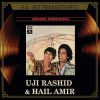 UJI RASHID & HAIL AMIR / ASMARA BERGELORA
UJI RASHID & HAIL AMIR / ASMARA BERGELORA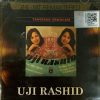 UJI RASHID / TANGISAN SEMALAM
UJI RASHID / TANGISAN SEMALAM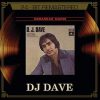 DJ DAVE / KENANGAN MANIS
DJ DAVE / KENANGAN MANIS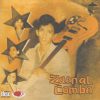 ZAENAL COMBO
ZAENAL COMBO